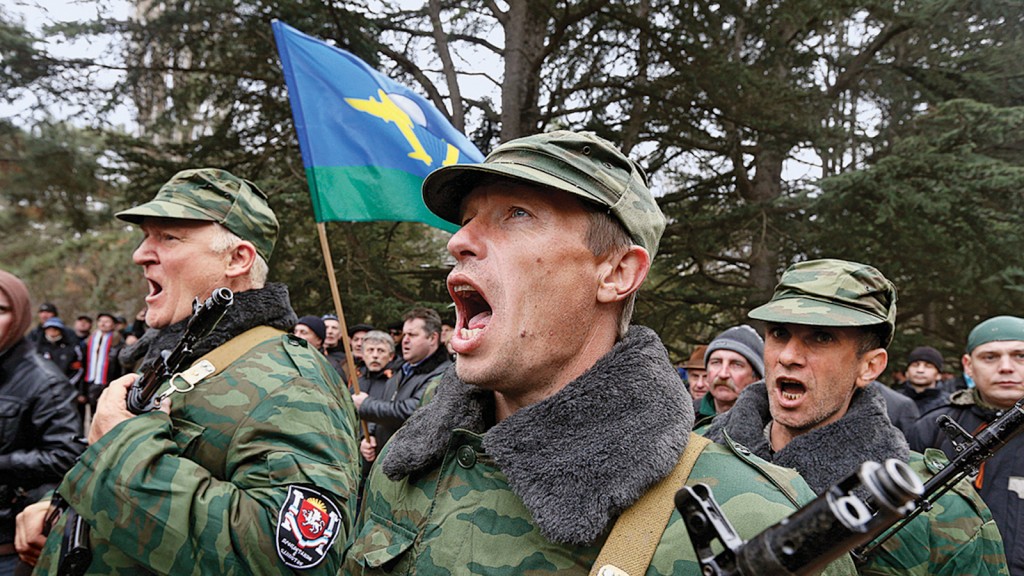Your morning five: Crimea will soon be on Russian time
Also: Ms. Aglukkaq goes to Geneva
Members of a pro-Russian self defence unit take an oath to the Crimea government in Simferopol March 8, 2014. Russian Foreign Minister Sergei Lavrov said on Saturday the new Ukrainian government should stick to an agreement signed by the ousted president, signalling no change in Moscow’s position over the Crimea crisis. REUTERS/Vasily Fedosenko (UKRAINE – Tags: POLITICS MILITARY TPX IMAGES OF THE DAY) – RTR3G8EX
Share
We tell you five things you need to know this morning.
1. Crimea moves to join Russia. Residents will soon hold Russian currency in their wallets, and set their clocks by Russian time. Ninety-six per cent of Crimeans voted to join the Russian Federation in a decisive referendum, according to some estimates. Crowds filled public squares in celebration. Meanwhile, the vote went virtually unrecognized by western governments. Prime Minister Stephen Harper was among world leaders vowing to reject the results of the “illegitimate” referendum held “with Crimea under illegal military occupation.”
2. Leona Aglukkaq stands up for the seal hunt. Stephen Harper’s Conservatives are serious enough about defending Canadian sealers that Aglukkaq, the federal environment minister, will head to Geneva to argue her case at a World Trade Organization appeal of a European Union ban on seal imports. The government’s traditional defence insists the hunt is humane, and that any dissenting opinion is based on “myths, misinformation and misguided emotion.” The WTO upheld the EU ban in a ruling last November.
3. Salvador Sánchez Cerén is El Salvador’s new president. The Marxist-Leninist rebel-turned-politician, currently the country’s vice-president, scraped by his right-wing opponent, Norman Quijano, by less than a percentage point (50.11% to 49.89%). Quijano, who attacked Cerén’s militant past as a far-left rebel, had complained of electoral fraud and hoped to annul the election’s results. A court ruled there was insufficient evidence to prove any fraud, and Cerén’s election stands. He will take office on June 1.
4. U.S. Navy SEALs boarded a rogue oil tanker. The ship, Morning Glory, was full of crude oil and had been hijacked by three Libyan rebels who evaded a blockade on the Mediterranean Sea. The seizure forced the ouster of former Libyan prime minister Ali Zeidan, who fled the country. Morning Glory may have been a deregistered North Korean ship, which an Egyptian company may have operated. No one was hurt when the SEALs took over.
5. A Malaysian jetliner is still missing. The fate of Flight MH-370 is so deeply shrouded in mystery that officials are ruling out very few theories about the plane’s whereabouts. Twenty-six nations are scanning the ever-expanding search area, which now covers a chunk of the planet that stretches from Kazakhstan to Australian waters. Authorities won’t even dismiss a theory that the airplane managed to land on a remote airstrip, whether it was hijacked or simply in distress. No one seems certain of anything.
